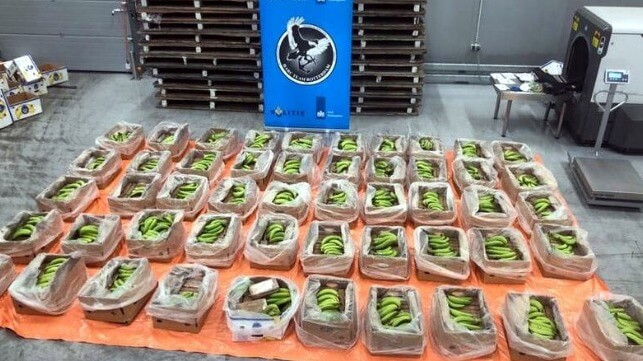MONOPOLY CAPITALI$M
Transformational Technologies Lead ABS Japan National Committee Meeting

[By: ABS]
Maritime industry leaders came together at the annual ABS Japan National Committee Meeting to discuss the latest developments in technology, sustainability, regulations and market trends in the shipping industry.
ABS President and COO John McDonald provided an update on ABS’ industry-leading safety performance and how ABS has secured the number one position in global orderbook share with a fleet that has grown to 285 million gross tons with more than 11,400 assets.
“Collaboration is key to keeping our industry in the forefront of the energy transition, and our committee includes the diverse expertise of many knowledgeable stakeholders, which provides powerful insight to do just that. I am proud of our long-standing relationships and years of experience in Japan and look forward to continuing our work together,” said McDonald.
Committee members were briefed on the latest developments in the dynamic regulatory environment and given a detailed breakdown of the industry’s sustainability challenges and ABS’ services for the industry.
They were given an update on current market trends and transformational technologies such as renewable power sources, carbon capture and pioneering developments in digital class.
Koichi Muto, ABS Japan National Committee Chairman and Corporate Advisor to Mitsui O.S.K. Lines, gave a detailed analysis of the renewable energy landscape for shipping.
He said: “We must think about what renewable energy will look like and what will happen to the power of ships. There are many possibilities for renewable energy. Whatever the cause of global warming, fossil fuels will eventually run out, so we will work to develop new energy sources as soon as possible. From now on, we must think about creating a truly sustainable energy society for eternity.”
The committee meetings are a forum for ABS members, including owners, operators, charterers, and industry representatives from flag Administrations, owner associations, and the shipbuilding and insurance sectors, to come together with ABS leaders and discuss industry issues and developments. These forums are an important part of an ongoing dialogue with the industry to address technical, operational and regulatory challenges.
The products and services herein described in this press release are not endorsed by The Maritime Executive.
CRIMINAL CAPITALI$M
European Commission Seeks to Support Ports in Fight Against Drug Smuggling

The European Commission today mapped out an aggressive roadmap of actions designed to step up the fight across member states against drug trafficking, including a strong focus on stopping illegal activities at ports across Europe. In laying out its plan and call for full support from the European Parliament and the Council, the Commission highlights the drug trade as “one of the most significant threats faced by the EU today.”
Today’s action follows a series of previous reports that have highlighted the scope of the drug trade and organized crime ranging from the major shipping carriers to ports across Europe. Europol in May 2023 released a detailed report working with the ports of Antwerp, Hamburg/Bremerhaven, and Rotterdam, looking at the efforts of organized crime. They cited the broad inflation of the ports by organized crime which was using efforts such as stolen identification numbers to gain access to containers that were being used to ferry the narcotics from South America. They found that criminal networks were placing people as employees in ports to gain access to their shipments. Separately, port officials have warned that the drug cartels are expanding efforts into smaller and secondary ports to avoid detection.
Executives from both MSC and Maersk have talked of their extensive efforts aimed at combatting drug smuggling. Last year, several of the major shipping companies and ports announced new partnerships to coordinate their efforts. The Financial Times, however, today in reporting the new EU roadmap quotes a Maersk executive saying the whole supply chain has been infiltrated by drug gangs.
The European Commission cites data from 2021 saying 303 tonnes of cocaine was seized while ports continue to make increasingly large captures. Both Rotterdam and Algeciras recently set records with the Dutch authorities announcing a single seizure of eight tones of cocaine while the Spanish seized 9.5 tonnes.
"Europe has now replaced the U.S. as the single largest cocaine market in the world and is fast becoming a world hub for drug trafficking – a disturbing claim to fame and one we have to redouble efforts to reverse," said Margaritis Schinas, Vice-President for Promoting our European Way of Life. "Today we are announcing a new series of measures to enhance the resilience of logistical hubs and dismantle criminal networks. This will be complemented by strong engagement with partners worldwide to crack down on the main supply routes."
The new roadmap from the European Commission calls for the launch of a new European Ports Alliance. It would specifically seek to reinforce customs authorities and law enforcement as well as the public and private ports to stop the infiltration by criminals. The plan has a total of 17 actions in four priority areas that also include more financial and digital investigations to catch criminal networks, better cooperation between member states, and working with international partners. The Commission commits to implementing its actions in 2023 and 2024.
The Financial Times in reviewing the roadmap says that it calls for allocating €200 million for scanning equipment at the ports. They cite Antwerp as an example saying overall that just two percent of goods are scanned and five percent of the containers identified as “high risk.” Antwerp’s current plans call for scanning all high-risk containers arriving at its terminals by 2028.
Another part of the effort would increase the screening and vetting of port employees. The Commission also plans to commit €20 million to support the Internal Security Fund and efforts to seek proposals to combat organized crime.
No comments:
Post a Comment